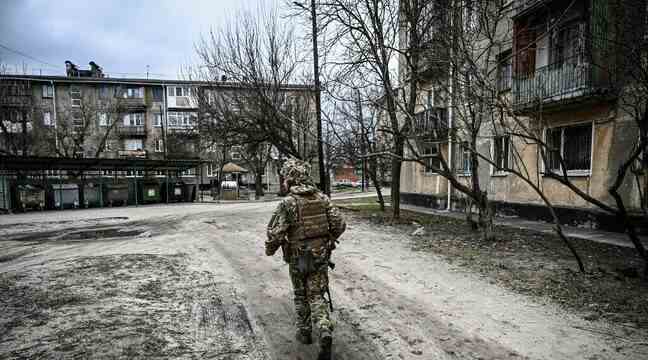They have been acting with complete impunity in the four corners of the world since 2014. Deployed in Syria, then in Libya, in the Central African Republic or more recently in Mali, the mercenaries recruited by the private Russian company Wagner would now be present in Ukraine revealed on Monday the british newspaper The Times. Nothing surprising for the journalist Alexandra Jousset, at the origin of an edifying investigation on this organization and co-directed with her colleague Ksenya Bolchakova.
Broadcast on France 5, this rich and extensive documentary looks back at the genesis of Wagner, details his complex links with the Kremlin and reports the methods of destabilization used by this group during various conflicts. In an interview with 20 minutes, Alexandra Jousset analyzes the troubled role played by this organization and the consequences of its involvement in the war that has pitted Ukraine against Vladimir Putin’s Russia since February 23.
What is the Wagner Society?
It is a Russian private military company. It’s a company of mercenaries. In Russia, this type of private military organization is illegal, so Wagner has no legal existence. It was created between 2013 and 2014 and bears the nom de guerre of the founder of the first group of fighters, Dimitri Utkin. He is an admirer of Adolf Hitler who had the symbol of the SS tattooed on his neck. The profiles of the members of Wagner are however quite heterogeneous, there are men of Russian nationality but also Ukrainians. During our investigation, we met former members of the French foreign legion, ex-convicts, former reservists. Their common point is to sell their services in exchange for bonuses.
What do we know about the links maintained between this company and the Russian authorities?
We cannot say that there is a direct link between Wagner and the Kremlin. They also play on this “grey area”. But what we do know is that this company uses the means of the Russian Ministry of Defense to carry out its missions throughout the world. Wagner’s training and recruitment center is also located right next to a base of the GRU, the Russian intelligence service and it is known that reports written by Wagner’s command were sent to the Chief of Staff of the Russian army during missions carried out in Libya, for example.
During our investigation, one of our interlocutors, who worked for the Wagner group, clearly told us: “We are a subsidiary of the Russian government”. This is an open secret based on the concept of “plausible deniability”. When Wagner commits abuses, Vladimir Putin can perfectly say: “It’s not us, we have no connection with them and if you have a problem with this company, contact them”. But all the evidence we have collected demonstrates that the organization could not act without the encouragement or consent of the Kremlin.
According to information from the British newspaper The Times, more than 400 Russian mercenaries affiliated with this company were dispatched to the Ukrainian capital to assassinate the president. How do you analyze this information?
Personally, we could not corroborate this information. On the other hand, it is known that several Russian private military companies, including Wagner, are currently deployed in Ukraine. Since 2014, the presence of these paramilitaries has been almost continuous in this country. Moreover, the first missions entrusted to Wagner took place in Ukraine and consisted of eliminating separatist leaders who were taking too much power. This type of mission is therefore part of the organization’s DNA. Then, the members of Wagner mainly carried out military police missions in the Donbass. They assisted the local forces to maintain order.
What role can this private organization play in the current conflict in Ukraine?
According to our sources, despite the strong presence of paramilitaries affiliated with these private companies in Ukraine, this remains a drop in the bucket compared to the numbers deployed by the regular Russian army. Wagner will not change the face of the conflict. On the other hand, it is an effective means of terrorizing the population. To deploy these men on the ground is to give carte blanche to possible abuses. This is what happened in the Central African Republic.
Wagner’s other asset is his ability to polarize the debate and to deploy disinformation campaigns. The activities of this company are not limited only to the military field. In 2016, this organization partly orchestrated the disinformation campaign targeting the US presidential election using “troll farms” on social media. This model was then replicated in Africa. It is a complex weapon, evolved and thought out.

